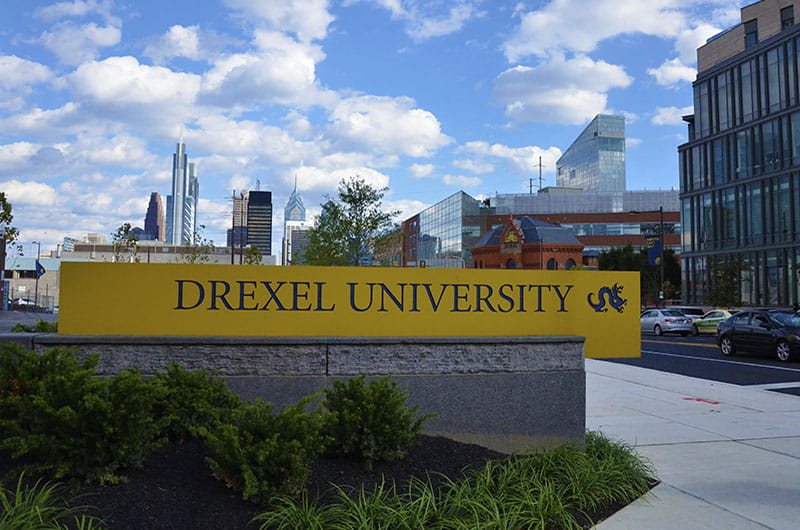Work Continues on Drexel’s Strategic Plan, with Input from Community Survey

When Drexel University moved to remote operations in March amidst stay-at-home orders, the University’s Executive Planning Committee (EPC) — a group of 22 faculty and professional staff members, chaired by President John Fry — was in the process of analyzing the results of a February survey of faculty and professional staff that will be used to shape Drexel’s 2020-2030 Strategic Plan.
The pandemic has since altered the timelines and methods of the EPC’s next steps — the plan will now be released in late 2020 — but the effects of the pandemic on higher education have only increased the importance of strategic planning.
In February, faculty and professional staff were asked to identify what they saw as Drexel’s greatest strengths and challenges as a research university. Such community feedback is vital in helping the EPC identify the priorities that will steer Drexel’s direction for the next decade.
Committee members assessed 573 total responses, which comprise 16 percent of Drexel’s faculty and professional staff. Of the responses, 259 came from faculty, 249 came from professional staff and 65 were participants who did not identify as either.
One key finding was widespread agreement on what is seen as the University’s greatest strength: about 70 percent of responses identified the Drexel Co-op program. Approximately 30 percent listed Drexel’s highly accessible and vibrant location in Philadelphia.
“Although partnerships as a category was indicated as strength by only 8 percent of the respondents, it's pretty clear that such partnerships are a key factor underlying the co-op program, Drexel’s location and many of the other things people mentioned, such as research activity. In summarizing what the survey participants considered as Drexel’s strengths, the majority seem to view our connections with employers via co-op and being in the Philadelphia area at the top of the list,” said Teaching Professor and Coordinator for Academic Assessment and Quality Improvement Donald L. McEachron, PhD, of the School of Biomedical Engineering, Science & Health Systems, who reviewed the results as a member of the EPC.
Responses related to the University’s biggest perceived challenges were less sharply defined. The largest number of respondents, 45 percent, mentioned the price of tuition and costs to students. About 20 percent described challenges with organizational structure and processes, resource allocation or facilities quality. Faculty members were more likely to critique organizational structure and processes and resource allocation, while professional staffers were more likely to identify facilities quality and student experience.
About 15 to 20 percent of respondents highlighted specific areas of priority. Listed in order of prevalence, those include: streamlining organizational processes, reducing tuition costs, diversifying and solidifying the University’s financial state, improving the student experience and increasing research funding. Faculty members were more likely to prioritize research funding and program support as challenges needing attention, while professional staff were more likely to identify tuition reduction and improving the student experience.
“Strategically, now we are looking at these results to generate a better sense of Drexel’s value statement and see how we can leverage this and communicate it to our faculty and professional staff, and also our community,” McEachron said.
From the survey results, the EPC produced guiding principles to inform continued work on the Strategic Plan, which were shared in a message from Fry in April:
- Mission: Drexel University is an urban research university that unites academics, industry and community to address society's most pressing challenges through immersive experiential learning, interdisciplinary research and creative activity. We prepare graduates to become purpose-driven professionals and agents for positive change in a dynamic and complex world
- Vision: To create, disseminate and leverage knowledge with our partners, providing solutions for our world
- Strategic goals:
- Grow basic and applied research that generates new knowledge and impactful solutions.
- Deliver agile curricula responsive to rapidly changing societal needs.
- Provide an array of engaging, immersive learning experiences that prepare students to lead purposeful and positive lives.
- Leverage Drexel's unique academic design to serve as a national model for reshaping the relationship of universities to external partners.
- Engage community partners to contribute responsible, sustainable solutions that improve the quality of life in the region and beyond.
“The survey responses were compiled before the campus temporarily closed and don’t take into account fresh challenges now facing higher education, but that doesn’t diminish the value of that community feedback,” said Fry. “In fact, it only highlights the importance, for faculty and professional staff to participate in future information sessions held by the EPC.”
Before the outbreak, EPC members were meeting with academic and administrative departments throughout the winter term, and had planned for town halls and other large-scale community information sessions to be held during the spring. The EPC now plans to resume those activities in virtual formats, and will send the Drexel community updates about opportunities for information and feedback.
Additional surveys are being considered to assess if the pandemic has changed the perceptions of faculty, professional staff and students.
In the meantime, faculty and professional staff can contact the EPC directly with questions or concerns.
In This Article
Drexel News is produced by
University Marketing and Communications.

